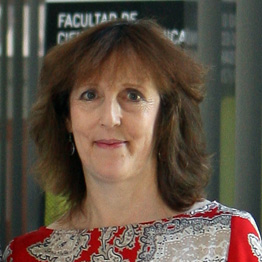
CLILNetLE - network for Content and Language Integrated Learning for Languages in Education Education
Towards a bi- and multilingual literacy discipline
The COST action (CA21114) CLILNetLE is a European network of research and innovation. Through it, different experts examine some of the current challenges related to the topic of literacy and disciplinary literacy in the bilingual Education . Specifically, what is related to Education with CLIL (Content and Language Integrated Learning), which consists of teaching content subjects (such as History or Biology) through a second language (such as English). This network is funded by the COST agency (European Cooperation in Science and Technology).
Since its inception in the 1990s, CLIL methodology has become one of the most established approaches in the European bilingual landscape educational . Today it constitutes a part of the general Education , so it is necessary to clarify with empirical evidence the linguistic criteria required in a multilingual learning context, which is less about general foreign language learning and more about disciplinary literacy.
Disciplinary literacy is defined as the "use of reading, reasoning, research, speaking and writing that are needed to learn and form complex knowledge in each academic discipline " (McConachie & Petrosky, 2009). That is, to teach disciplinary literacy is to ask students to "think, speak, read, and write like historians, scientists, or mathematicians," which requires a knowledge of academic language, language specific to different school disciplines, and the language of schooling.
programs of study The results to date show how the different school subjects have specific disciplinary literacies, which can improve school performance if pedagogies that are sensitive to disciplinary language are used.
Since its inception in the 1990s, CLIL/CALEC methodology has become one of the most established approaches in the European bilingual landscape educational .
1
Develop an initial definition of disciplinary literacy in bi- and multilingual contexts (CLIL).
2
Develop a platform for the collection and dissemination of disciplinary literacies in different subjects (History, Mathematics and Natural Sciences).
3
To evaluate and create standardized research tools and methods for the study of bi/multilingual disciplinary literacy at different educational stages.
4
Identify examples of good practices in the teaching of disciplinary literacy in digital media and outside the school.
5
Disseminate findings on effective pedagogical practices to support bi/multilingual disciplinary literacy and integrate stakeholders.
By connecting researchers from all over Europe, this action aims to develop a shared and impactful diary of research , as well as a dissemination strategy, to support the development of literacy and disciplinary literacy in bi/multilingual contexts. This action integrates for the first time experts from different fields, linguists, educators, experts from different academic disciplines, educational authorities and the organizations of training and development professor .
The University of Navarra team(Ruth Breeze and Pilar Gerns) participates in the first two groups of work.

Ruth Breeze
Research fellow

Pilar Gerns
Research fellow
Participating countries:
Cyprus, France, Greece, Lithuania, Moldova, Romania, Sweden, Albania, Croatia, Ireland, Latvia, North Macedonia, Poland, Spain, Turkey, Bosnia and Herzegovina, Czech Republic, Finland, Germany, Hungary, Italy, Luxembourg, Malta, Portugal, Slovakia, Austria, Netherlands, Norway, Serbia, United Kingdom and Slovenia.
